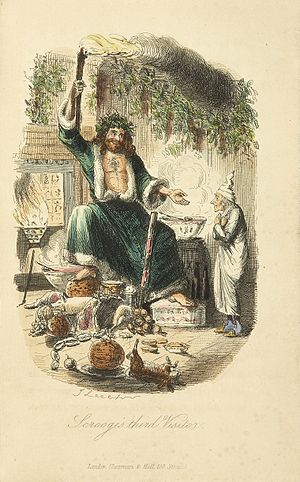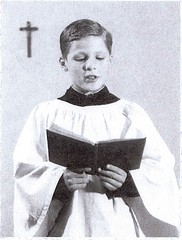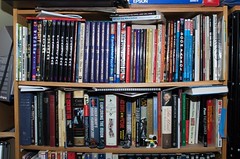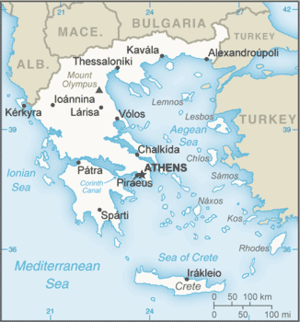Christa Polkinhorn, originally from
Switzerland, lives and works as writer and translator in Santa Monica, California. She divides her time between the United States and Switzerland and has strong ties to both countries. The tension and excitement this "double life" creates informs her work. Among her many interests, aside from writing, are traveling, studying foreign languages and cultures, drawing and painting, meeting people and forming friendships. Christa has published poems in various literary magazines, a collection of poems,
Path of Fire, 2002, published by Finishing Line Press, and her debut novel,
Love of a Stonemason.
Tell us about Love of a Stonemason in a few sentences.
Love of a Stonemason is a story about the struggle of two artists with their past, their family, their creativity, and their love for each other. Told from the point of view of Karla, a young painter, it depicts the world through her artistic sensibility. It takes the reader on a journey full of sights, smells, tastes, and sounds from the south of Switzerland to Italy and the
Peruvian Andes.
Here is a short blurb: Karla Bocelli is no stranger to loss. When she was five years old, her mother died in a car crash in the south of Switzerland. Her Peruvian father lives at the other end of the world, and a year ago, her aunt and guardian passed away. Now, at age twenty-four, Karla almost gets hit by a speeding car. As if this wasn’t fateful enough, Andreas, the driver, turns out to be a sculptor and carver of tombstones. In spite of his profession, Andreas is anything but morbid. Quick-tempered and intense, he exudes a rough-and-tumble energy. After a tumultuous start of their relationship, Karla comes to see in Andreas the "rock in her life," the perfect antidote to her fears of abandonment and bouts of depression. Andreas, however, wrestles with his own ghosts: an alcoholic father who abused him as a child and his own fits of anger. Together, the two artists must confront the demons that haunt them.
How did you come to write this particular book?
The initial trigger was an intense personal experience. At the end of 2005, I lost my mother and found myself to be the sole survivor of our immediate family in Switzerland, my only sister and my father having died earlier. Death and its impact—the pain of loss and loneliness—plays an important in the life of the main character in the novel. My father was an artist in his younger years. I talked to a stonemason about the tombstone on my parents’ grave. Some of my relatives live in the south of Switzerland and my visits in Italy and Peru also found their way into the novel. The final product was a completely fictional story. While writing Love of a Stonemason, I was rarely conscious of any one particular person, incidence, or experience, which influenced me. Some of it came to me much later. I had many “aha”-moments half-way into the novel or even after it was finished. One of the most fascinating aspects of the creative process is the way consciousness and the unconscious work together to produce something unique and new.
If you have a favorite character in your novel, why that particular one?
Both main characters, Karla and Andreas, are flawed but I fell in love with them as I created them. When I was writing the book, they became more real to me than some of the “real” persons in my life. It was a little unsettling, to say the least.
How can people buy your book?
Love of a Stonemason is available as ebook for the Kindle reader at Amazon, both in the USA and in the UK, and in various other ebook formats at
Smashwords. It is also available as paperback at Amazon.
Love of a Stonemason in various ebook formats at
Smashwords
What qualities make a successful writer?
Passion, willingness to practice one’s craft, to revise, and to learn from one’s mistakes, patience, insistence, and, yes, some talent.
How do you set about writing a piece?
I don’t have a set approach. I have an idea and start writing. After a while, somewhat of a rough outline begins to develop, which I change as I go along. When the piece feels like it’s coming together, I sometimes write a blurb or a short synopsis. Once in a while, I write the last chapter early on but I often change it because the work leads me in a different direction.
Beginning writers make many mistakes; what do you think is the most harmful?
Talking about wanting to be a writer and not doing it. I have several friends who told me after I published my novel that they were thinking about writing, but then gave me a ton of excuses why they didn’t have enough time and so on. My answer: If you want to write, you have to do it. Stop making excuses. If you only write one page a day, double-spaced, then after a year, you have a 365 page manuscript!
To what extent are grammar and spelling important to a writer?
That’s a non-brainer, isn’t it? Of course, they are important. You can have the most interesting plot in the world but if your work is full of spelling mistakes, if the style doesn’t fit the content, you lose most sophisticated readers.
How much revision of your MS do you do before you send it off?
I revise it myself many times and then I hand it over to a professional editor. First of all, I do my creative writing in English, which is not my native language. My native language is German (Swiss German actually). Although, I have lived more than half of my life in the United States and am fluent in English, I still feel I need a native speaker to point out awkward expressions or flawed syntax. So, yes, I wouldn’t think of publishing anything without having it proofread and edited. And even with all the proofreading by a professional editor, some minor mistakes still remain. A work is really never done. I am in the process of translating my novel into German and as a translator, you are really close to the text and you find all those little blunders you didn’t notice before. It’s aggravating and I have uploaded new versions of my novel several times. That’s the one big advantage of ebooks; they are fairly easy to update. With paperbacks, it’s a little more cumbersome.
To what extent do you think genre is useful in the publishing world?
I dislike genre labels because they are limiting and often misleading. Is a novel about love and relationships a “romance?” Perhaps, but not necessarily. What do you call a book which deals with love between a man and a woman and at the same time with relationships between parents and children and the creative process of artists? An art romance? An art-family-saga? I think most great works of literature cross genres. The only genres that make any sense to me are “Fiction” and “Non Fiction.”
Do you have support, either from family and friends or a writing group?
My friends and family are very supportive. I have joined writing groups in the past and may do so again in the future. Ultimately though, writing is a solitary process. You have to be willing to spend quite a bit of time by yourself. I have known people who join workshops for years and never produce a finished piece of work. There is a great article by Michael Ventura, an American author, about writing:
The Talent of the Room. I have it pinned to the wall in my writing corner at home.
If there’s a single aspect to writing that really frustrates you, what is it?
That’s probably the same for many authors: sitting in front of a piece of paper or a computer screen, chewing your fingers, and not knowing what to write. Writer’s block. It happens sometimes.
Is there any aspect of writing that you really enjoy?
There are moments of elation when something inside me clicks and a paragraph or chapter feels just right, when the characters on the page become alive. Those moments make up for all the drudgery of sitting at my desk or on my sofa, struggling with words and ideas. Writing for me is a process of discovery, of exploring things in the world around me and in myself. There is a quotation I recently read by May Sarton, the author of Mrs. Stevens hears the Mermaids Singing: “Love opens the doors into everything, as far as I can see, including and perhaps most of all, the door into one's own secret, and often terrible and frightening, real self.” You can replace “love” by “writing” and it would fit.
What are you writing now?
I just finished the rough draft of a second novel with the working title “An Uncommon Family.” You can read the first three preliminary chapters on my blog:
http://christa-polkinhorn.blogspot.com/
Do you have a website or a blog that readers can visit?
Thank you very much for giving me the opportunity to be interviewed. I enjoy your blog and the interesting topics!
Christa
___________________________________
Christa Polkinhorn
Bookworm Press
Tel/Fax: 310-393-7199
E-Mail: (primary), (secondary)
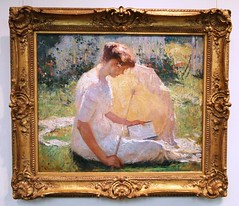 Image by pobrecito33 via Flickr
Image by pobrecito33 via Flickr





